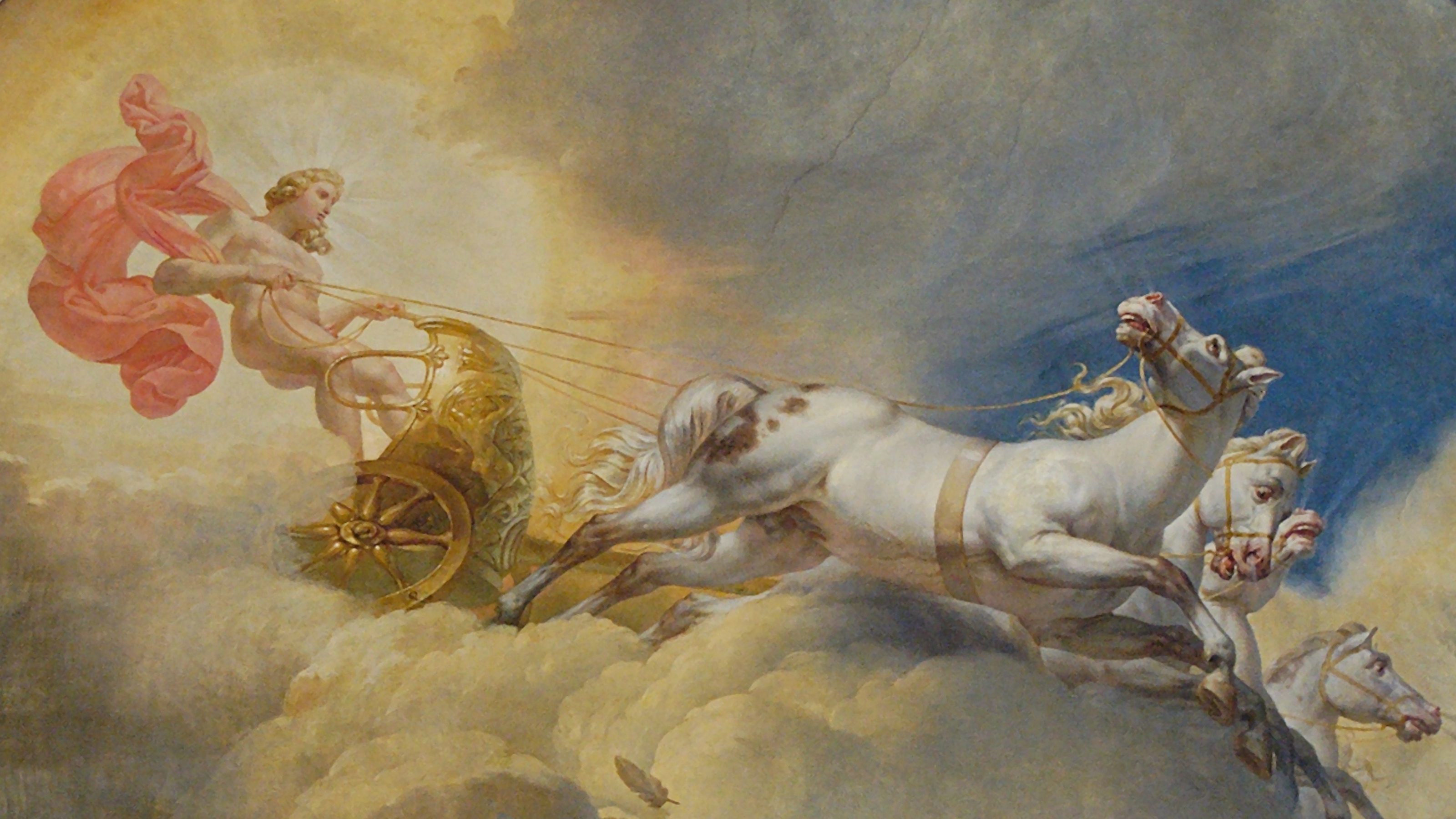How to spot “executive ego dysfunction”

Credit: Marie-Lan Nguyen / Wikimedia Commons
- Many leaders suffer from an exaggerated sense of their knowledge and insight.
- We tend to excuse their dysfunction and celebrate their presumed genius.
- We’ve made rock stars out of CEOs but all too often the results are not pretty.
About 15 years ago, I had what I’ll charitably call a crisis of confidence. After spending years successfully climbing the corporate ladder, I hit a wall. Hard. I had been on a pretty awesome professional trajectory for more than two decades, which included being named the youngest vice president and division general manager ever at an iconic, century-old retailer in my mid-thirties, and then, just a few years later, being elected an executive officer at one of the most prestigious retailers in the world.
Despite this, my career, and just about everything else around me, all came crashing down. Not only had I resigned from a position that, at that time, seemed perfect for me, but because I allowed my career success to become so intertwined with how I viewed my general worthiness as a human being, losing my job meant I had also lost myself.
I sank into a very deep and dark hole of depression. Looking back on things now, I would say I experienced something between a complete spiritual collapse and an abject mental breakdown.
Ultimately, the gory details aren’t all that important (besides, I need to leave some gas in the tank for my rip-roaring, tell-all memoir). But I will share that it was incredibly painful for me, my family, and pretty much everyone around me, and it had all been building for quite a long time. Like most everyone’s life, how and why it all went down the particular way it did was, shall we say, complicated.
Regardless, it took a lot of time, focus, and effort to right the ship and to discover—with the help of many amazing friends, therapists, and spiritual teachers—the root of my problems. It wasn’t simply a highly dysfunctional and chaotic childhood, lack of appreciation on the part of my bosses, a paucity of support from what I saw as jealous or overly competitive colleagues, terribly bad luck, or any of the dozens of excuses I’ve made over the years to keep feeling like a victim and to prevent me from taking a hard look in the mirror.
My ego was the enemy. And until I accepted that completely, very little of any consequence was going to change.
“Many of us insist the main impediment to a full, successful life is the outside world. In fact, the most common enemy lies within our ego. Early in our careers it impedes learning and the cultivation of talent. With success it can blind us to our faults and sow future problems. In failure, it magnifies each blow and makes recovery more difficult. At every stage, ego holds us back.”
Ryan Holiday, Ego Is the Enemy
To be sure, my family history of mental illness played a not-insignificant part. But even there my ego got in the way, as I spent literally decades being too proud or too ashamed to ask for help. I’ve had the good fortune of working with many top-performing, hard-charging executives. I’ve also studied and written about many more type A leaders during the past fifteen years. Were there times that they failed or behaved poorly because of bad judgment, ignorance, or sheer stupidity?
Absolutely.
At the same time, many leaders suffer from what I call executive ego dysfunction. It’s a close cousin of narcissistic personality disorder but doesn’t require a clinical diagnosis. We pretty much know when we see or experience it in a leader: an exaggerated sense of their knowledge and insight, a need to always be the center of attention, an unwillingness to ask for help, and so on. I bet you can rather easily think of a few high-profile leaders who fit this description.

All too often we ignore their dysfunction because of their presumed genius, outsized financial results, huge social media following, or overall celebrity. For the sake of humanity and our own serenity, we shouldn’t.
Like me, you were probably taught at an early age that self-sufficiency was a virtue. If you went, as I did, to a famous school and upon graduation joined a prestigious company, you got the sense that you were, hmmm, how should I phrase it? Pretty hot shit.
Although teamwork was formally deemed important in most of the roles I had early in my career, I quickly learned that doing things that called attention to my obvious awesomeness was by far the main way one got ahead. Once I joined a large corporation, the hierarchy was clear, as were the means to get noticed, get bonuses, get promoted, and end up in the corner office. As one mentor put it to me before I had even turned thirty: “It’s a dog-eat-dog world, son, and only one person gets the big job.”
As I started to get those bigger and bigger jobs, the notion that I was the supreme source of power and wisdom—the main man, the head honcho, the grand pooh-bah—was constantly reinforced. My subordinates often hung on to my every word (or so it seemed) or worked hard to figure out just what it was that “the boss” wanted. I’m also quite certain I was guilty of more mansplaining than anyone should be subjected to.
As time went on, I found myself with a seat at the table in more and more of the rooms where it happened: Strategic planning discussions and large allocations of capital. Annual budget reviews. Presentations to the board of directors of publicly traded companies worth many billions of dollars. Important people seemed to listen to what I had to say. They trusted me with huge sums of money and the oversight of many hundreds of people. And the money as well as the impressive-sounding titles just kept coming.
The traditional leadership model for many legacy organizations thrives on creating an “up or out” dynamic. Cultural norms, built over generations, reinforce the nearly mythical qualities ascribed to those who ascend to the thrones of well-known organizations.
I don’t have a diagnosis of narcissistic personality disorder, but let’s just say any narcissistic tendencies I have were very much reinforced by the system I was part of. That’s hardly a coincidence. The traditional leadership model for many legacy organizations thrives on creating an “up or out” dynamic. Cultural norms, built over generations, reinforce the nearly mythical qualities ascribed to those who ascend to the thrones of well-known organizations.
I also seemed to have an almost pathological draw to difficult situations and nearly impossible challenges. Have a business that needs to be turned around? Hey, I’ll do it! Need to jumpstart a moribund division that’s lost its way? Ooh, pick me, pick me! Want to energize the growth potential of an ill-advised acquisition? Baby, I’m your man.
After a while you begin to believe your own press. I know I did. Of course, it’s not just me. We’ve made god-like figures out of CEOs, founding entrepreneurs, and other leaders we treat like rock stars, and all too often the results are not pretty. We’ve all seen countless examples of leaders who fall prey to the Dunning–Kruger effect: the tendency of people to overestimate their competence in areas outside of their core expertise.
Whatever the reason, it’s a really bad idea to get high on your own supply.





